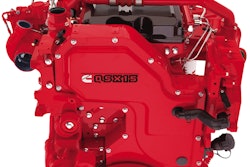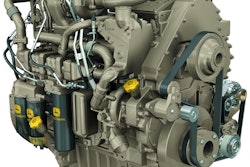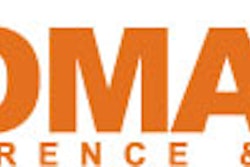While at the VDI Conference SABIC Innovative Plastics announced its collaboration with IAV GmbH, a world leader in advanced vehicle and powertrain systems, to develop advanced thermoplastic solutions that can replace metal in electric vehicle (EV) and hybrid powertrain components. Specifically, the two companies are targeting new ways to optimize vehicle performance and efficiency, including lightweighting to offset heavy battery packs and shielding in areas of high voltage.
“Our strategic collaboration with IAV is all about creating innovative new options for our customers as they strive to develop and deliver a range of electrified vehicles to consumers, whether it’s hybrids, plug-in hybrids or pure battery electrics,” says Gregory A. Adams, vice president, Automotive, SABIC Innovative Plastics. “Bringing together complementary skills and strengths from different companies is increasingly the key to delivering the rapid technological advances that our customers worldwide want and deserve. We see a winning combination with IAV’s leading expertise in advanced powertrain engineering and our selection of tough, high-performance specialty materials and application development know-how. We look forward to helping automakers develop next generation powertrains and powertrain components as a result of this collaboration.”
IAV has been developing innovative concepts and technologies for future vehicle generations for 27 years. In the area of e-mobility, the company develops powertrains, control units, on board systems, high voltage battery systems and other systems and components for battery and hybrid electric vehicles.
“We are pleased to be working closely with SABIC Innovative Plastics on new powertrain components that will take full advantage of the light weight, shielding performance, corrosion and high temperature resistance of thermoplastic resins and compounds,” says Kurt Blumenröder, president and CEO, IAV GmbH. “SABIC Innovative Plastics’ extensive experience in metal replacement and high performance engineering thermoplastics is a great fit with our engineering expertise. We anticipate important advancements that can help the automotive industry make significant progress in the performance and efficiency of hybrids and electric vehicles.”
To sustain the full environmental advantages of hybrid, plug-in hybrid, and battery electric vehicles, the additional weight of battery packs – up to 300 kg (approximately 661 lbs.) on a mid-sized car – needs to be offset by weight reduction in other areas. Thermoplastics including Noryl polyphenylene oxide (PPO) and Valox polybutylene terephthalate (PBT) resins from SABIC Innovative Plastics can replace steel in battery frames and housings. These resins also offer chemical and temperature resistance, dimensional stability and flame retardance.
The increasing use of lithium ion and lithium polymer batteries, which have higher power and energy density, requires thermal management solutions for battery packs. These batteries operate best at room temperature. To control temperature, liquid cooling often replaces air cooling for greater efficiency. As a result, these liquids require chemically resistant, high-performance engineering thermoplastic materials. Further, if power is withdrawn from a battery, it will heat up – thus requiring materials with excellent temperature resistance. SABIC Innovative Plastics’ Ultem polyetherimide (PEI) resins deliver high heat resistance and inherent flame retardance, and Valox PBT resins provide high heat and chemical resistance.
In hybrid-electric vehicles, the higher the voltage, the more important electromagnetic interference/radio frequency interference (EMI/RFI) shielding becomes to control the potential disturbance from the different electronic components such as inverters, electronic control units and battery management system. LNP Faradex compounds from SABIC Innovative Plastics provide exceptional EMI/RFI shielding properties without the heavy weight of metal layers or metallization.
Compared to internal combustion engines that supply heat to the vehicle’s interior, alternative energy vehicles rely on battery power for heating and air conditioning, making insulation more vital to avoid a heavy drain on the battery. Lexan polycarbonate glazing solutions offer five times the insulative performance of glass, and specialized infrared (IR) absorbing grades of Lexan resin can further optimize air conditioning by reducing the amount of heat load transferred to a vehicle’s interior in hot climates or sunny weather.



















